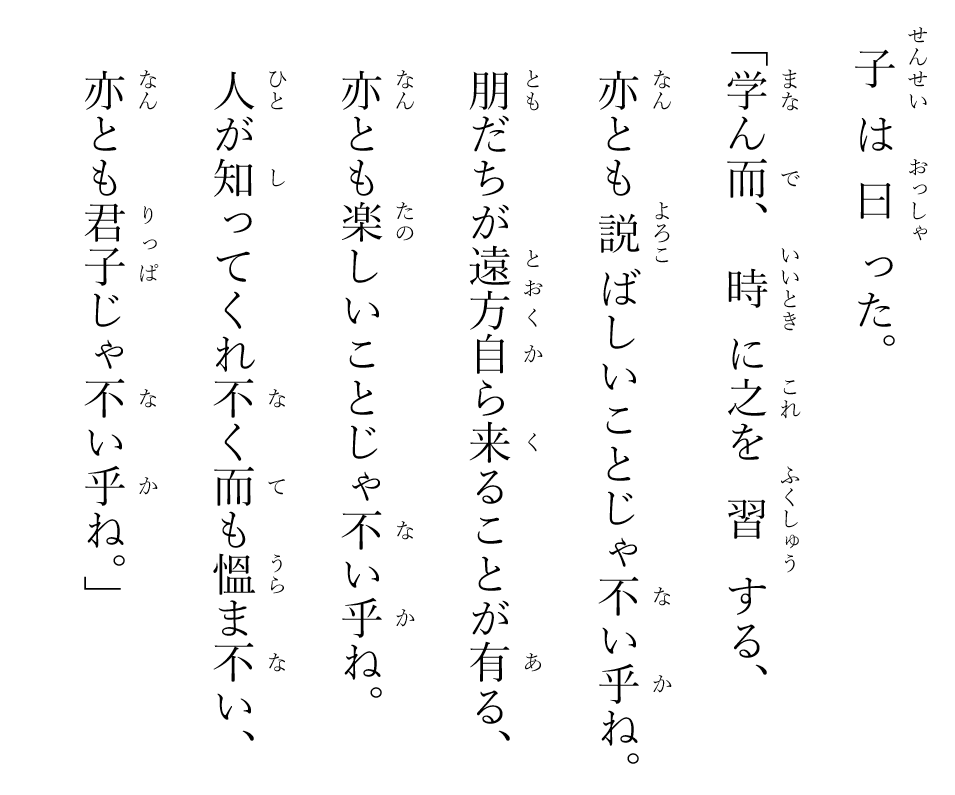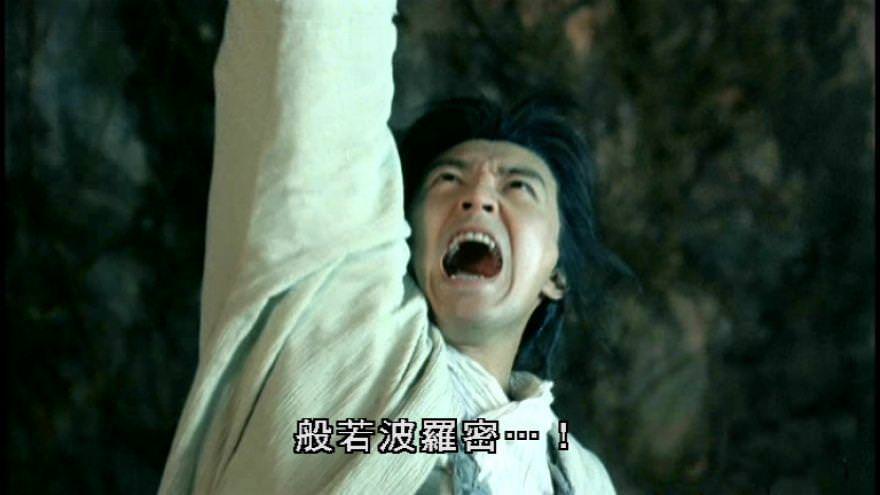有朋自遠方來,不亦樂乎?
學而時習之,不亦說乎?
有朋自遠方來,不亦樂乎?
人不知而不慍,不亦君子乎?
這句常被拆散來用,例如中間的「有朋自遠方來」那一段,你的外地朋友來找你吃飯,你就說:有朋自遠方來,不亦樂乎。
孔子的原話想要帶出的意思其實有點不同。中間的那一段,必須和上段和下端一起解讀。
這句話,黃繼忠是這樣翻譯的:The Master said: To learn something and regularly practice it—is it not a joy? To have schoolfellows come from distant states—is it not a pleasure? Not to resent when men do no know you—is it not like a gentleman?







Comments